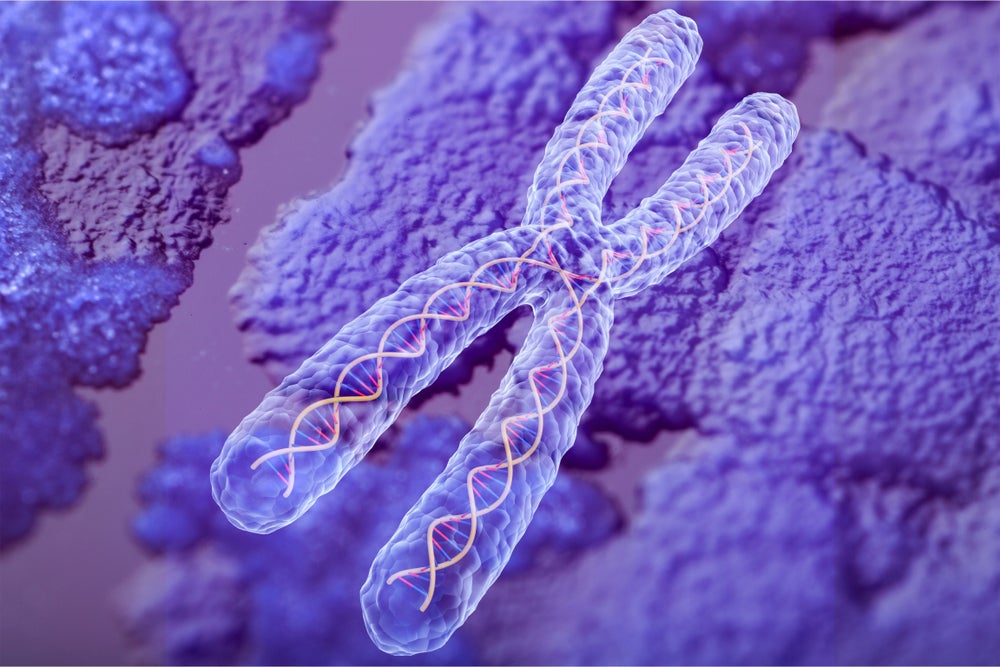US DoD backs potential treatment for Fragile X-linked neurodegenerative disorder
01 Aug 2023
Phase 2Drug ApprovalClinical Result

Preview
Source: Pharmaceutical Technology
Robert Barrie

Preview
Source: Pharmaceutical Technology
Estimates suggest that 30%-40% of male carriers, and 8%-16% of premutation carriers will develop FXTAS symptoms. Image credit: Shutterstock/Billion Photos.
The US Department of Defense (DoD) has awarded PureTech Health $11.4m to help target Fragile X-associated tremor/ataxia syndrome (FXTAS), a late-onset neurological condition that is difficult to diagnose and currently has no effective treatments.
Based in Massachusetts, US, Puretech Health will use the funds to advance LYT-300 in a Phase II trial.
Recommended Reports

Preview
Source: Pharmaceutical Technology
ReportsLOA and PTSR Model - Neuromyelitis Optica Spectrum Disorder in Neuromyelitis Optica (Devic’s Sy... GlobalData

Preview
Source: Pharmaceutical Technology
ReportsLOA and PTSR Model - Radiprodil in Neurodegenerative Diseases GlobalData
View allCompanies IntelligencePuretech Health PlcDodUC Davis M.I.N.D. InstitutePURE TECH, LLCView all
LYT-300 is an oral prodrug of allopregnanolone, which is known to regulate mood via its positive allosteric modulation of gamma-aminobutyric-acid type A (GABAA) receptors. It is already approved by the US Food and Drug Administration (FDA) as an infusion treatment for postpartum depression.
PureTech Health said administration limitations have previously restricted the wider use of the neurosteroid. Developed using the company’s Glyph platform that harnesses natural lipid absorption and transport processes, LYT-300 can be orally administered.
FXTAS occurs in premutation carriers of Fragile X Syndrome. Estimates suggest that 30%-40% of male carriers, and 8%-16% of premutation carriers will develop FXTAS symptoms. Symptoms include intention tremors, ataxia, neuropathy, and cognitive symptoms.
The company also recently began a proof-of-concept study for the drug in the treatment of anxiety. Due to similar presentations, patients with FXTAS are often misdiagnosed with Parkinson’s disease.
The Phase II trial will be conducted in collaboration with the University of California, Davis.
UC Davis MIND Institute medical director and co-primary investigator for the LYT-300 trial Dr Randi Hagerman said: “FXTAS is a devastating, late-onset neurodegenerative condition characterised by cognitive decline, tremors in the hands and balance problems. Currently, there are no primary treatments for FXTAS, though IV-administrated allopregnanolone has demonstrated therapeutic potential.”
“I am excited to be working with PureTech to evaluate their oral prodrug of allopregnanolone (LYT-300), and I am optimistic that this award will help accelerate the development of this potential first therapy for FXTAS.”
For more details,please visit the original website
The content of the article does not represent any opinions of Synapse and its affiliated companies. If there is any copyright infringement or error, please contact us, and we will deal with it within 24 hours.
Organizations
Targets
Hot reports
Get started for free today!
Accelerate Strategic R&D decision making with Synapse, PatSnap’s AI-powered Connected Innovation Intelligence Platform Built for Life Sciences Professionals.
Start your data trial now!
Synapse data is also accessible to external entities via APIs or data packages. Leverages most recent intelligence information, enabling fullest potential.




